Nurturing Sustainability: A Transformative Journey into UI/UX Design for Climate Change in Zenius Independent Studies Programs
Hello! I'm Marco Antonio Barrera, a seventh-semester student majoring in Japanese Literature at Udayana University. During my seventh semester, I had the privilege of participating in the Ministry of Education and Culture's MBKM program, specifically in the MSIB (Magang dan Studi Independen Bersertifikat) batch 5. In this batch, I embarked on an Independent Study at Zenius, focusing on UI/UX Design for Climate Change Resolution and Sustainable Development. Curious about what I gained during this program? Let's dive into the details!
The surge in digital product usage underscores the importance for companies to ensure their digital products meet user needs seamlessly and comfortably. Furthermore, amid the climate change crisis, companies bear the responsibility of ensuring their digital products operate on sustainability principles, encouraging users to adopt environmentally friendly behavior.
Through the UI/UX Design program at Zenius, I delved into the technical skills of UI/UX Design, coupled with critical thinking and a fundamental understanding of climate change and sustainable development. The program comprised three types of classes: Climate Change & Sustainable Development 101, Critical Thinking & Decision Making, and UI/UX Design. These classes employed a design thinking framework, allowing us to learn through empathy, problem definition, solution creation, and testing.
In Climate Change & Sustainable Development 101, we explored climate change, its impacts, and potential mitigation solutions. The discussions in this class heightened our awareness of actions harming the environment and contributing to climate change. We delved into valuable insights, such as global average temperature changes, rising sea levels, deforestation, destructive mining practices, international geopolitics, and more. The assignment for this class was to create a video showcasing Earth's environmental crisis and how we can advocate for climate change.
Meanwhile, Critical Thinking & Decision Making equipped us with a framework for producing weighted conclusions. This knowledge proved beneficial when identifying and solving problems, instilling a sense of concern through critical thinking, concluding issues before making decisions, and producing well-weighted decisions. The major assignment for this class was crafting an argumentative essay based on a given thesis.
The core class in digital technology was UI/UX Design, delving into the role of interface design in digital products. We learned about effective design, user needs research, and selecting appropriate design components to build a user interface (UI). After completing the research process, we created a technical design in graphical form, resulting in a prototype that could be tested before translating the designs into actual interfaces. The major assignment for this class involved redesigning an online transportation application to enhance user convenience, from research to prototype testing.
Assignments were given in each learning phase, starting from conceptual frameworks to implementation. Each process was accompanied by mentors who guided us through the work. The final task included a collaborative module with participants from different learning paths, creating a holistic digital product solution that could mitigate climate change. Together with my group, we designed an application.
Here are the achievements I gained from this MBKM program:
Understanding the causes and impacts of climate change, evaluating mitigation efforts, and formulating solutions to help address the impacts of climate change.
Grasping quantitative data, writing with a well-structured and logical approach, engaging in reasoning, evaluating readings, and applying cost-benefit analysis in decision-making.
Understanding the workflow of UI design, UX research, and UX writing, and applying design thinking and product sense to design UX solutions.
Creating effective research designs, developing in-depth user personas and journey maps, and mastering the creation of UX deliverables.
Crafting accessible UI designs, implementing priority matrices in product roadmaps, and mastering other aspects of product design, such as user flows, wireframes, mockups, and motion design.
Developing a problem statement from research findings, creating design solutions, and validating solutions related to climate change issues and sustainable development.
Throughout this program, I gained:
Fundamental concepts of UI/UX Design and the application of Design Thinking.
Skills in user needs research.
Creation of user personas, Customer Journey Maps, and Research Portfolios.
UI writing adhering to UX principles.
Utilization of Figma, Miro/FigJam, Canva, and Google Suite in UI/UX design.
Development of wireframes, design systems, product mockups, product prototypes, and usability testing.
Fundamental understanding of climate change issues and sustainable development.
Critical thinking skills and decision-making proceess.
Crucially, participating in MBKM provided me with a profound understanding of the causes and impacts of climate change, the ability to evaluate mitigation efforts, and the skills to formulate solutions for sustainable development. Consequently, the knowledge gained can contribute to building a better career in the industry while making a tangible impact on climate change awareness and management.
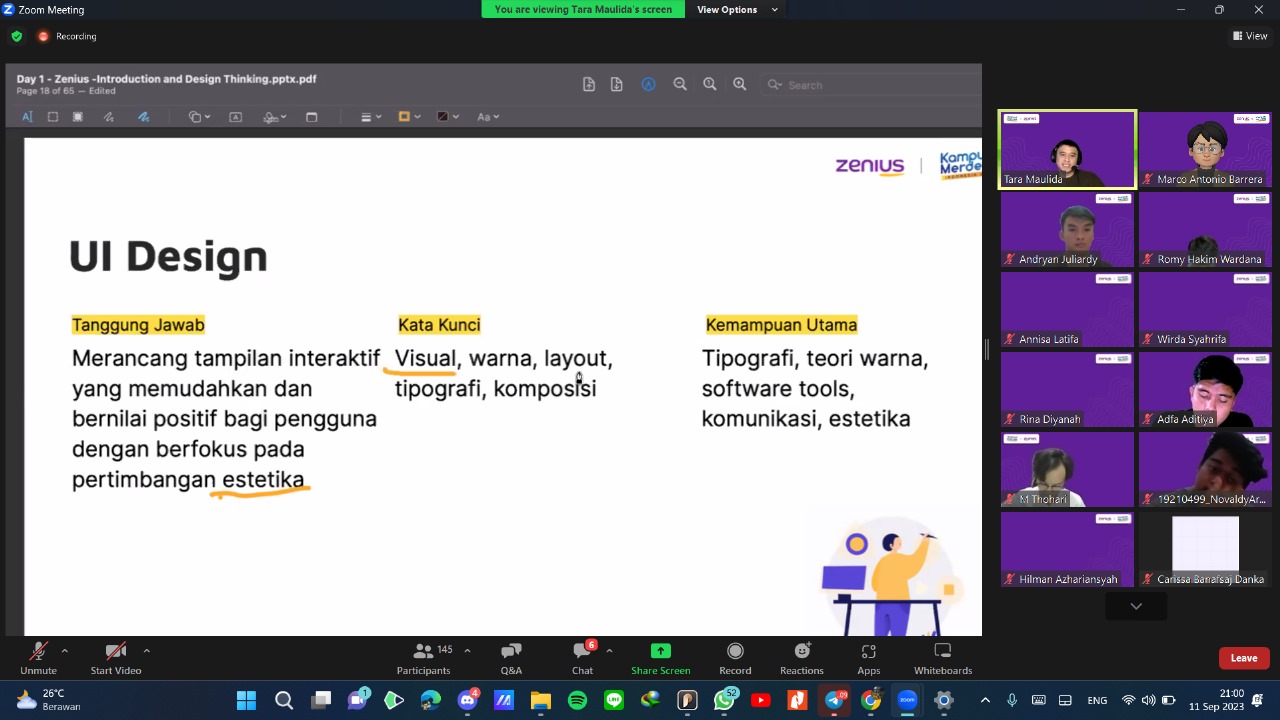
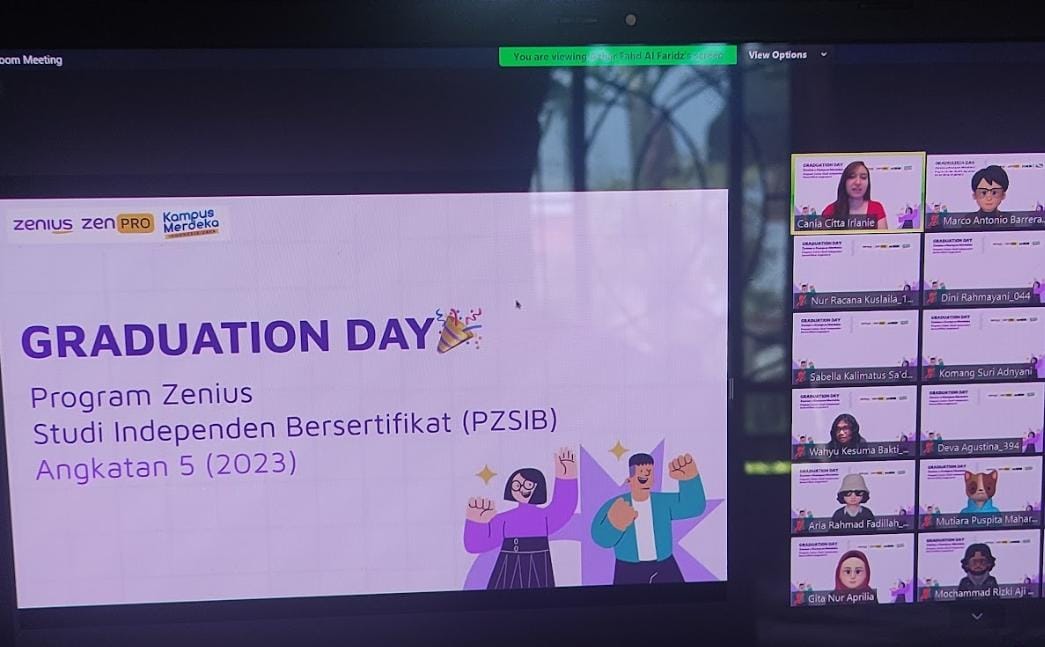
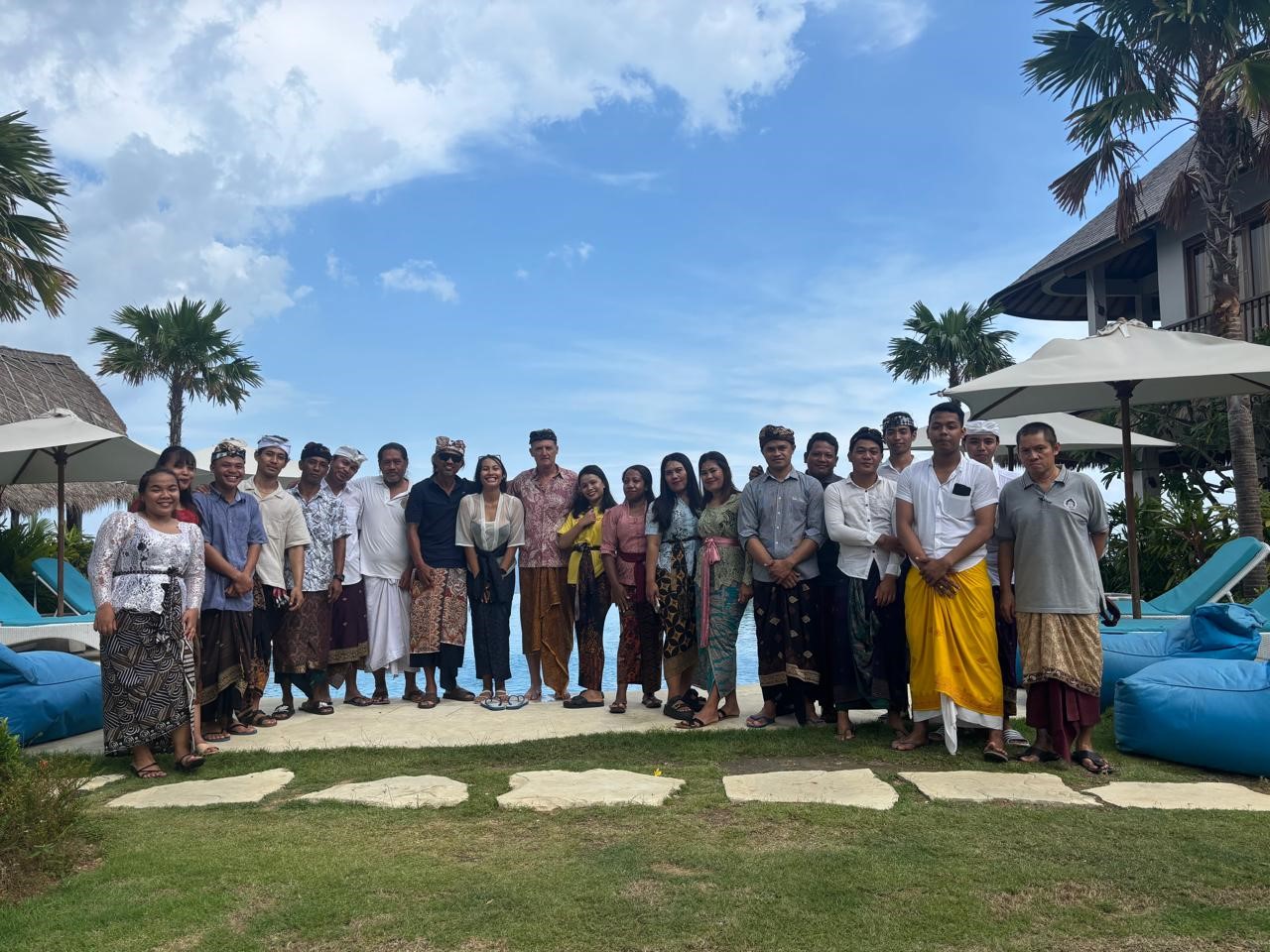
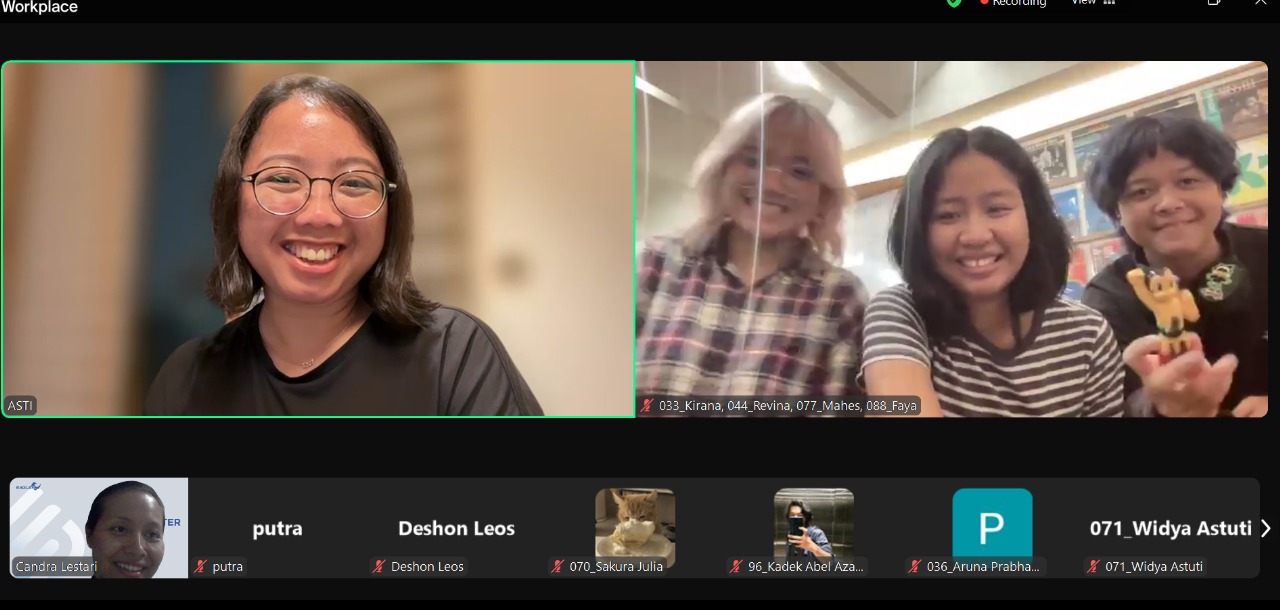
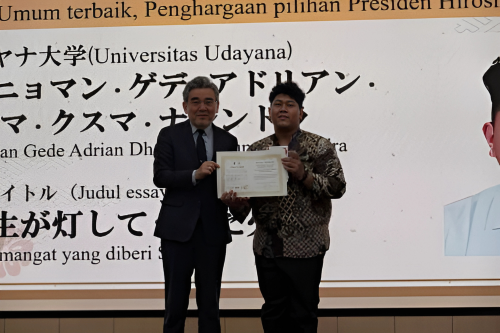
UDAYANA UNIVERSITY